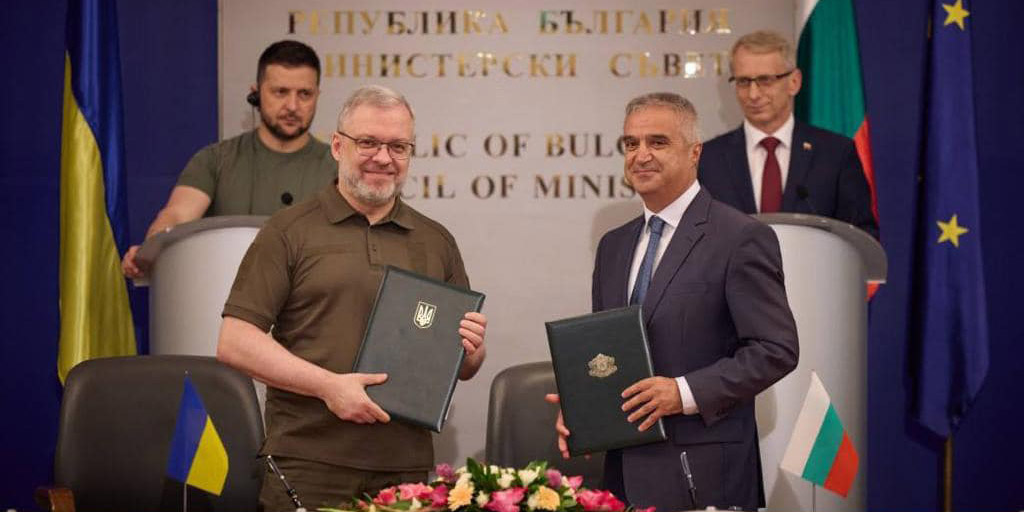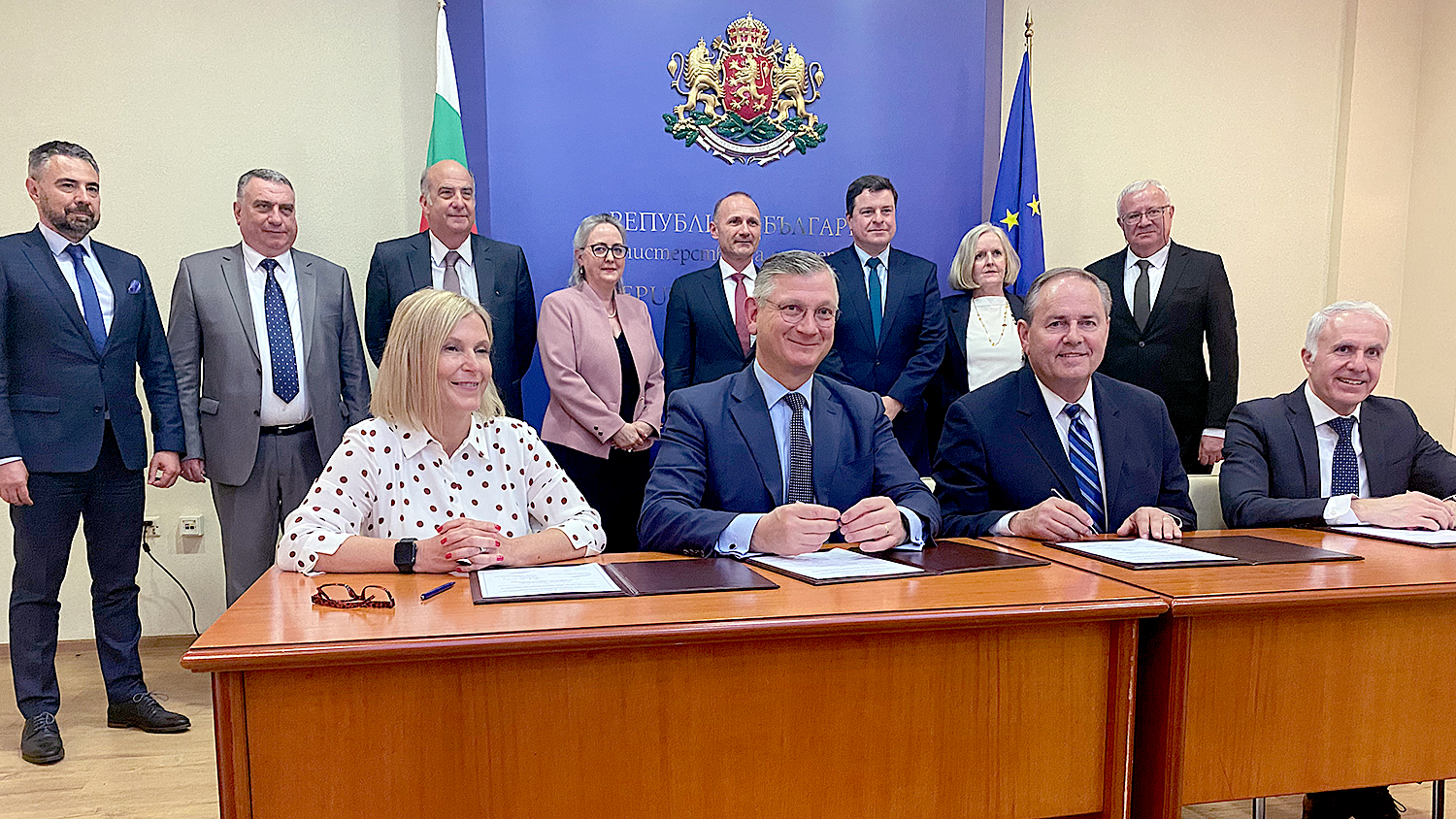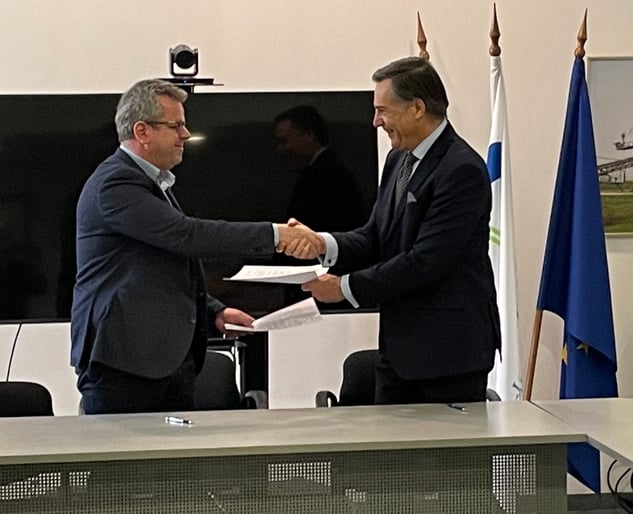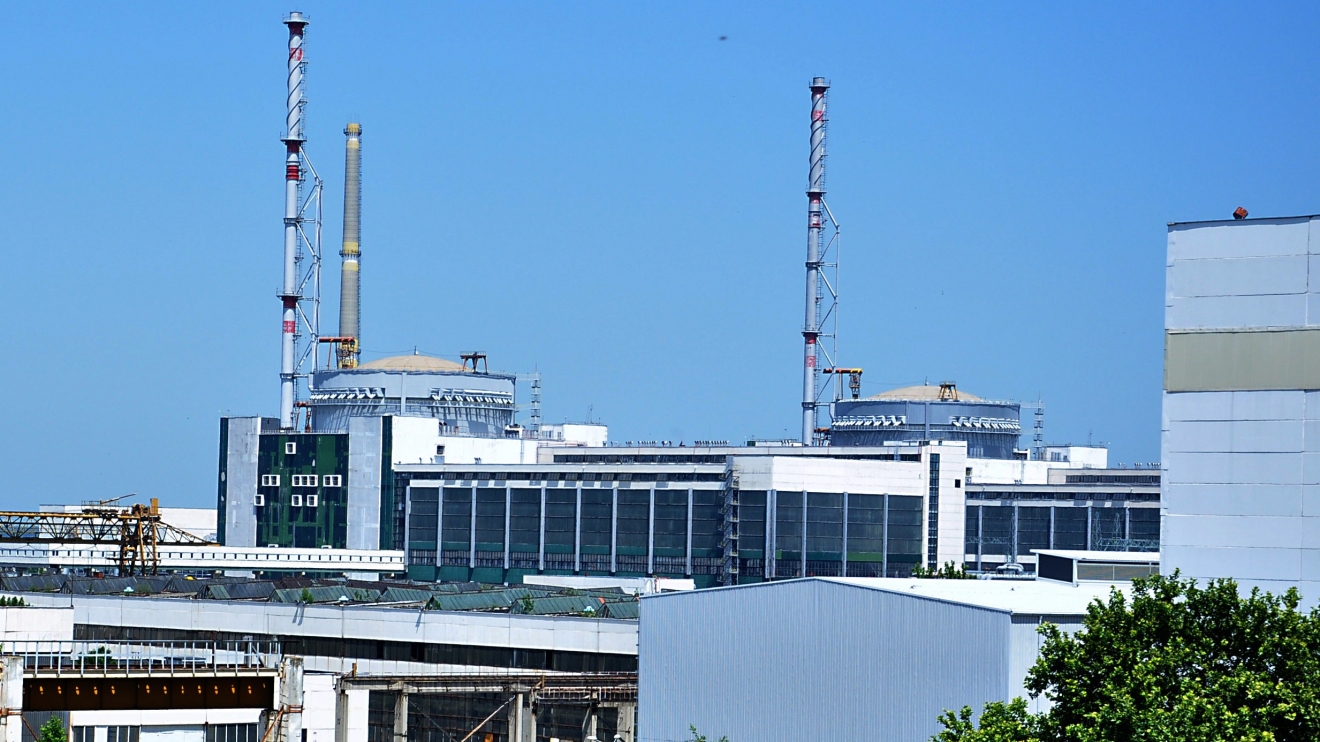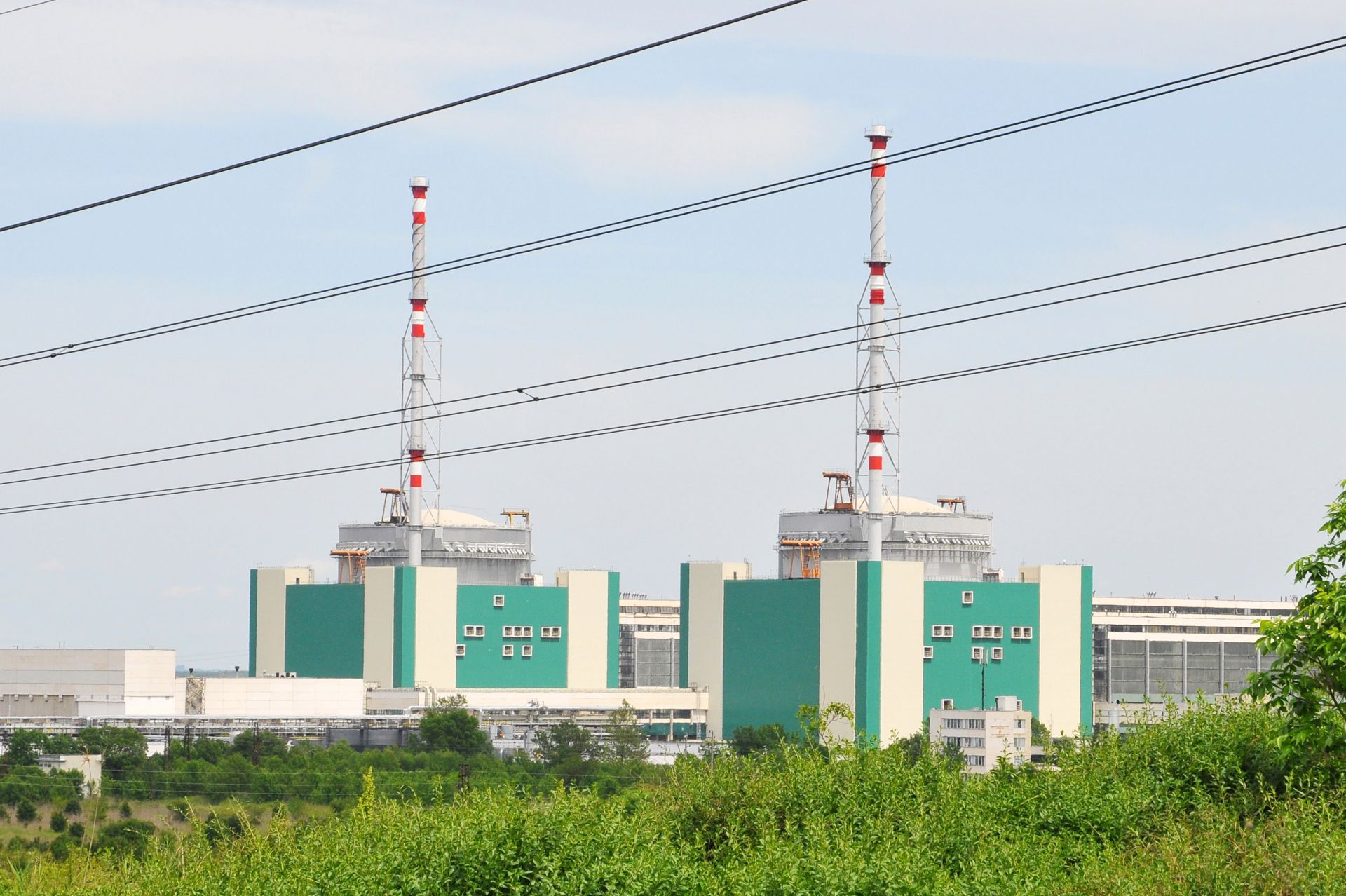Bulgarian prime minister Dimitar Glavchev, left, and acting energy minister Vladimir Malinov visited Kozloduy nuclear power plant, where Westinghouse is lined up to build two new reactors. (Photo: gov.bg)
Bulgarian officials have approved the transition to Westinghouse fuel at the nation's Kozloduy nuclear power plant, as Bulgaria moves away from its reliance on Russian supplies. The fuel was recently delivered for use in Unit 5.
Bulgaria’s Kozloduy nuclear power plant. (Photo: Gogo89873)
Bulgaria has shortlisted South Korea’s Hyundai Engineering and Construction team to build new reactors at Kozloduy nuclear power plant.
Of the five international companies to bid on the project, Hyundai E&C was the only one that met the requirements of project company Kozloduy NPP—New Builds Plc. for the commissioning and construction of two new Westinghouse Electric AP1000 reactors, the Bulgarian firm said. Bids were due February 2.
Assistant energy secretary for international affairs Andrew Light (seated, left) and Bulgarian energy minister Rumen Radev (seated, right) sign the new agreement in Bulgaria. (Photo: U.S. Embassy in Bulgaria)
Officials from the United States and Bulgaria inked a deal this week to cooperate as Bulgaria further develops its civil nuclear power program.
A working group will explore plans to design, construct, and commission two new units at Bulgaria’s Kozloduy nuclear power plant. The two countries will also “explore collaboration on research and training programs and developing Bulgaria's nuclear supply chain resilience,” according to reports.
Concept art of the eVinci accelerator hub, soon to be home to engineering and licensing operations, testing, prototype trials, business development, and sales. (Image: Westinghouse)
To help speed up commercialization of its eVinci microreactor, Westinghouse Electric Company this week launched a new design and manufacturing facility for the project near downtown Pittsburgh, Pa. Located in the borough of Etna, the 87,000-square-foot eVinci “accelerator hub” will be home to engineering and licensing operations, testing, prototype trials, business development, and sales, Westinghouse said in an October 24 announcement, adding that the facility will include manufacturing space for producing the “innovative heat pipes that are central to the eVinci technology.”
In the foreground, from left: Ukrainian energy minister German Galushchenko and Bulgarian energy minister Rumen Radev at the MOU signing ceremony in Sofia, Bulgaria. Looking on are (from left) Ukrainian president Volodymyr Zelenskyy and Bulgarian prime minister Nikolai Denkov.
The energy ministries of Bulgaria and Ukraine have announced the signing of a memorandum of understanding to expand collaboration in the energy sector, including the nuclear energy sector.
The Rivne nuclear power plant, with Units 1 and 2 in the foreground. (Photo: Westinghouse)
Westinghouse Electric Company this week inked agreements with two of its European customers—Ukraine reactor fleet operator Energoatom and Bulgaria’s Kozloduy NPP–Newbuild, a firm established in 2012 to commission new nuclear power capacity at Kozloduy, Bulgaria’s only nuclear power facility.
From left, Framatome’s CEO Bernard Fontana shakes hands with Slovenské Elektrárne’s CEO Branislav Strýček following the signing of an MOU. Also pictured is first vice chairman of Slovenské Elektrárne’s board of directors, Michele Bologna.
Slovakia’s Slovenské Elektrárne—operator of the nation’s two nuclear power plants, Bohunice and Mochovce—and France’s Framatome have signed a memorandum of understanding for the development of a global strategic relationship, the companies announced last week.
Various officials (back row) look on at the fuel supply contract signing in Sofia, Bulgaria. Front row, from left: Angie Darkey, Uranium Asset Management’s managing director; Boris Schucht, Urenco CEO; Tim Gitzel, Cameco president and CEO; and Aziz Dag, Westinghouse senior vice president of global BWR & VVER fuel business.
Canada’s Cameco and U.K.-based Urenco last week jointly announced the signing of agreements to become part of a Westinghouse-led fuel supply chain for Bulgaria’s Kozloduy nuclear power plant. (Also included in the partnership is Uranium Asset Management.)
Source: GlobalData Power Intelligence Center
Nuclear power will remain the dominant source of electricity generation in Bulgaria until 2030, despite the national government’s plans to add a substantial amount of renewable capacity this decade, says GlobalData, a U.K.-based data and analytics company. (According to a national strategy blueprint published on the Bulgarian parliament’s website last year, the country is targeting an additional 2,645 MW of installed capacity from renewable sources by the end of 2030.)



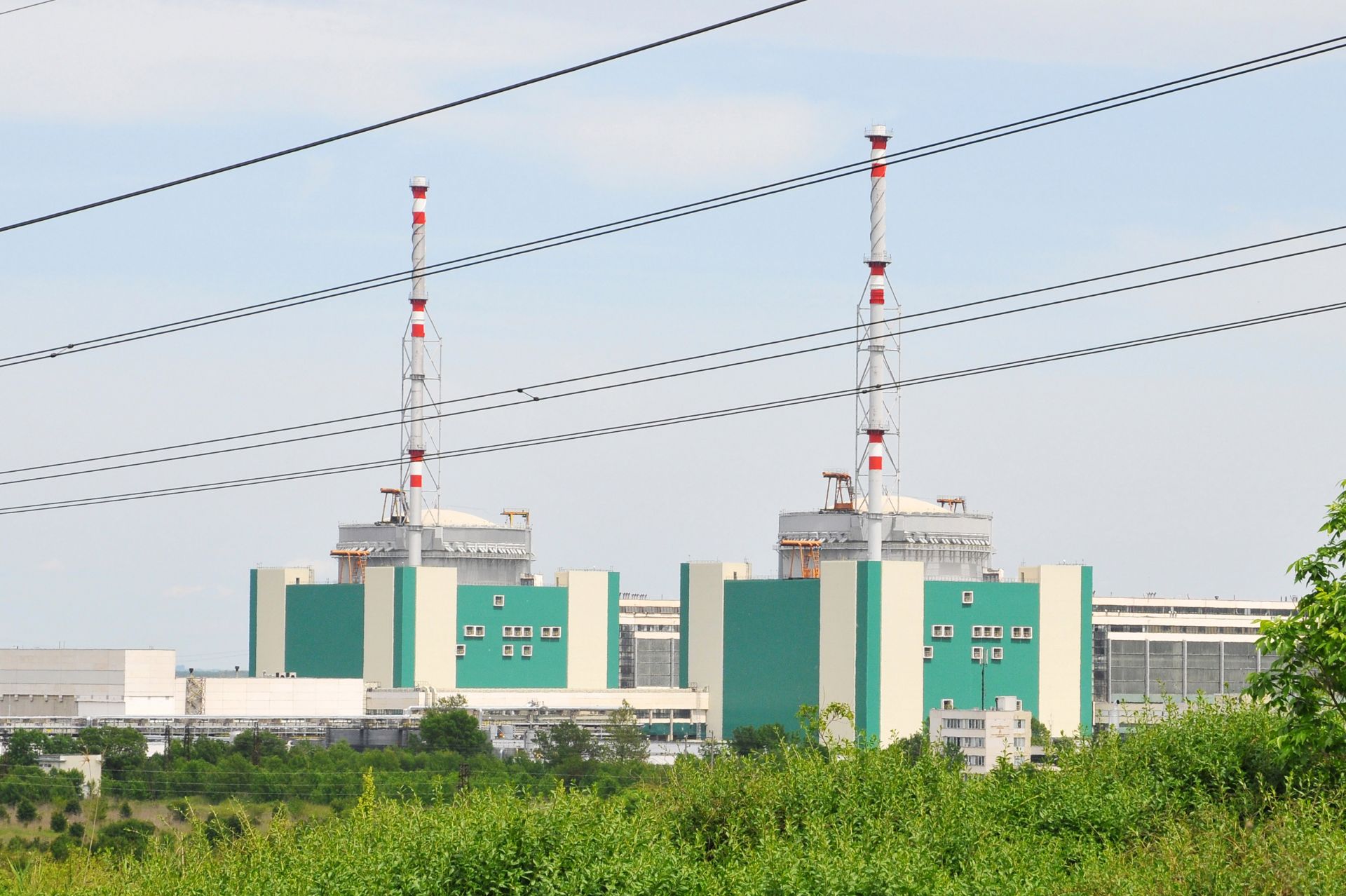

.jpg)
